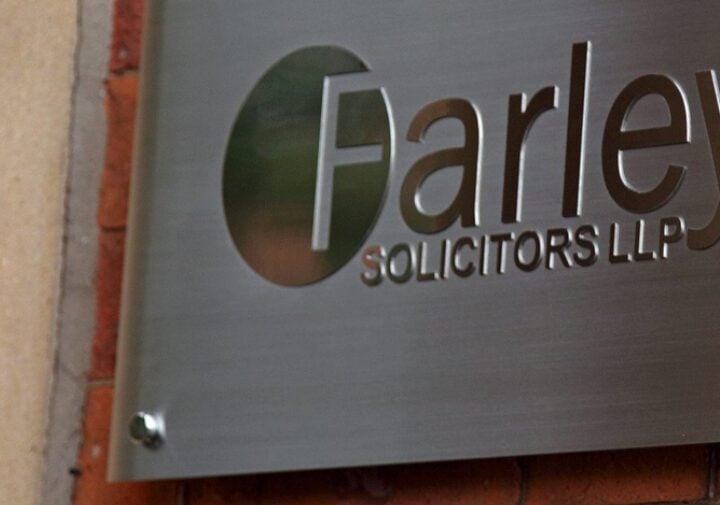Millions of people in the UK are struggling with debts, and this number increases as the impact of the COVID-19 pandemic continues. Debts can lead to further problems, for example affecting relationships as well as physical and mental health, especially if you let things spiral out of control.
Monday 22 March marks the start of Debt Awareness Week, an annual campaign run by the charity Step Change to raise awareness of the help available to people experiencing difficulties with their finances. The theme of this year’s campaign is #TheFirstStep, encouraging people to seek help by asking “what if you could be free from debt?” and “what if you had a plan for dealing with debt?” This could be possible if you take that first step in seeking professional advice.
Throughout the week, we will be here to answer your debt-related questions through our dedicated personal insolvency advice line on 0330 134 6036. You will also find lots of useful information on managing debt and debt statistics on our website and social media accounts, culminating in the release of our downloadable Debt Advice Guide. Follow us on Facebook, Twitter, LinkedIn or Instagram or sign up to our mailing list for more information.
Frequently Asked Debt Questions
To encourage anyone who doesn’t know where to start with their personal finances, or wanting to take that first step in seeking advice with regards to debt, Associate Partner Mark Skinner has pulled together some of the most frequently asked questions that he sees on a daily basis.
I don’t know where to start with my debts?!
Start with the basics, – look at your income and expenditure and write it down. Seeing all of your monthly outgoings in front of you, it’s easy to see quickly where you can make savings and an idea of what is outstanding. Your income / expenditure calculation tells you if you have enough surplus money to pay your unsecured creditors. If you don’t you are insolvent and should seek advice.
Can I ask for breathing space?
At the moment I am receiving a lot of enquiries from clients who have had their income reduced or stopped due to COVID-19. The first part of the advice will invariably be to speak to your creditors both secured and unsecured to arrange a payment holiday, if possible. This will allow some breathing space and further debt and insolvency advice can be given at a later date if needed. This will also allow time for, hopefully, life to return to normal with the economy and jobs and, in a lot of cases, the loan and credit agreements can resume after the debtor has returned to work or their income has increased.
Three-month payment holidays are available on mortgages, so speak to your mortgage company about putting a holiday in place. Likewise, with credit cards, loans, council tax, utilities etc. people are being given temporary payment breaks and/or reduced payment plans.
In addition, your creditors are now obliged to give a debtor ‘breathing space’ from being pursued for payment. If you have problem debt then creditors are now obliged to give you legal protection from creditors for up to 60 days. This time free from creditor pressure can be used to seek debt advice.
How do I deal with my creditors, they are contacting me all the time?
See above first of all!
Despite best intentions, you may fall behind in payments to creditors. These can come for a variety of reasons, income changes, increased costs, life events and unexpected events such as the current Covid pandemic. Whatever the reason behind inability to make payments, you have rights and responsibilities as a consumer who has borrowed money, even if you are unable to make any payments at all.
Creditors of course will contact you to demand payment for any outstanding payments or debts, and are fully entitled to do. whether by call, post, email – creditors will pursue all avenues to recover any monies owed to them. Whilst the last thing you probably want to do is talk with them, you might find that they are willing to negotiate if you do speak to them about your circumstances.
What options do I have apart from bankruptcy?
Bankruptcy is only one option and often a last resort, there may be other solutions more suited to your debt problems. An Individual Voluntary Arrangement, Debt Relief Order, or Debt Management Plans are often alternatives and will depend on your individual circumstances. It’s important to speak to a professional to get the right option for you.
Will I lose my house?
IVA’s are usually entered into by debtors in order to protect any assets they may have, such as equity in their property. There is however a common misconception that in bankruptcy you will automatically lose your property. This is not necessarily the case however if, for example, the house is in negative equity then your trustee in bankruptcy will not be interested in taking the house as it is not an asset and has no value in the bankruptcy estate. It is important you seek good insolvency advice where these important considerations can be advised on.
How will an insolvency procedure such as bankruptcy or an IVA affect my credit score?
Formal insolvency procedures such as an IVA or bankruptcy won’t affect your credit score forever, they will appear on your credit report for six years after discharge from bankruptcy. However, as soon as you are discharged from bankruptcy or you have completed your IVA then you start repairing you credit rating straight away. Gradually it improves if there are no further defaults. Lenders of course look at your credit profile so this will affect your ability to borrow money during this period. This takes into account other factors such as what other debts you have. The more debts you have the less likely you are to be lent further credit. I always say bankruptcy or an IVA will be the worst but also the best thing that will happen to your credit rating. It will be the best thing in the long term as the insolvency procedure be it Bankruptcy, an IVA or a DRO will get rid of all your problem debt. This is extremely attractive to a potential lender.
It is important to remember however, that whilst six years is a significant amount of time, without this help you would continue to struggle financially, which would also affect your credit score so by taking this formal procedure you are moving towards a positive financial position.
What does bankruptcy involve?
You can apply for bankruptcy yourself or it can be instigated by your creditor, if you owe over £5,000 to them. You can be made bankrupt by a creditor if you owe £5,000 or more, or break the terms of an Individual Voluntary Arrangement (IVA).
The usual process is for a creditor to issue a Statutory Demand before issuing proceedings. Once the demand has expired, a petition can be issued and a hearing date scheduled. The Court will then determine whether or not the individual should be made bankrupt, and whether the correct process has been followed. Once a petition is accepted and bankruptcy order has been made, the debtor will then be bankrupt, in most cases for a year. The Official Receiver or an Insolvency Practitioner will then be appointed as your Trustee and will manage the process by taking control of your assets.
If you are insolvent you may wish to make yourself bankrupt. This is commonly known as a ‘Debtors Petition’. You may wish to do this if you are insolvent and need relief from your creditors. Insolvency advice should be taken before this procedure is instigated.
Free, confidential debt advice
To discuss any debts and possible best ways forward to deal with debts please do not hesitate to get in touch with our specialists at Farleys for free, impartial and confidential advice. Call 0330 134 6036 or contact us by email.






